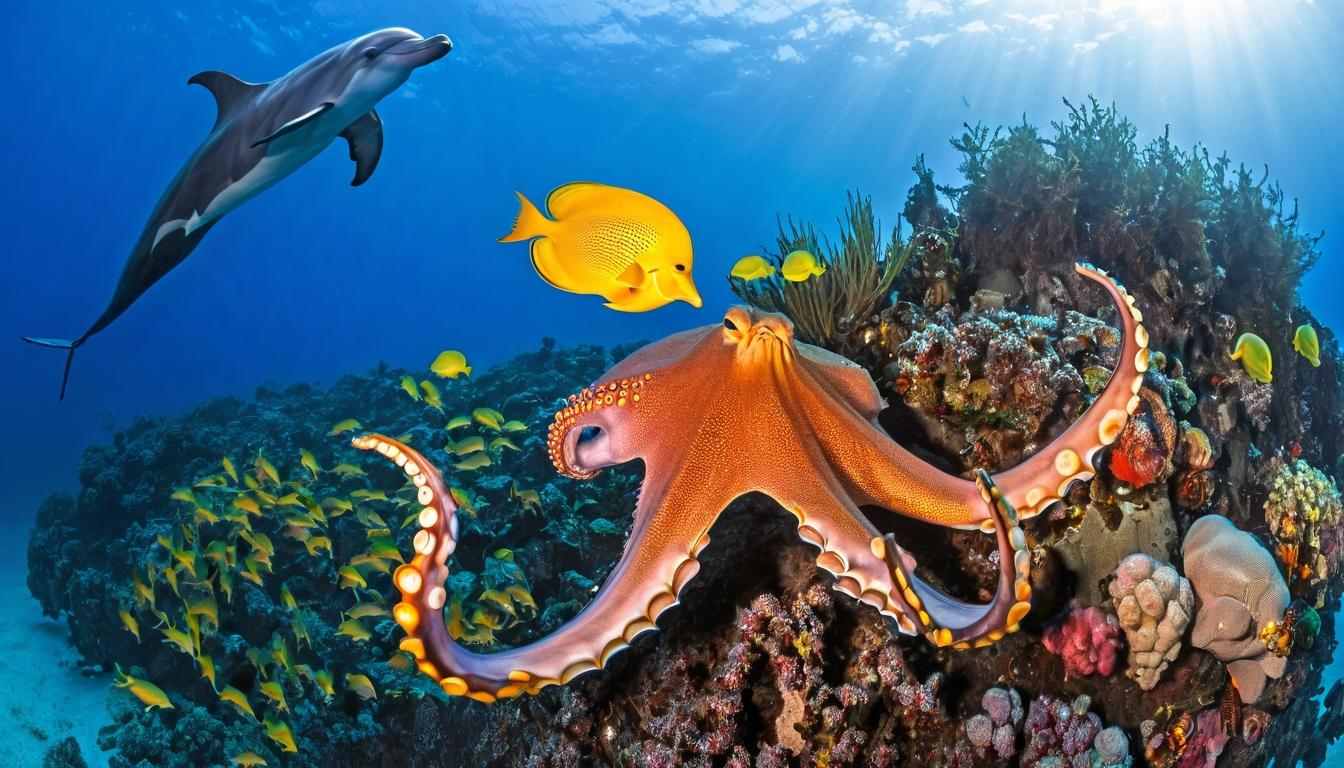In the quiet hours before dawn, while most of the world sleeps, nature is conducting its most extraordinary experiments. From the depths of the ocean to the highest treetops, animals engage in behaviors so peculiar they challenge our understanding of intelligence, emotion, and survival. What we're discovering isn't just fascinating—it's rewriting the textbooks.
Take the humble octopus, for instance. These eight-armed marvels don't just change color for camouflage—they communicate complex emotions through rapid skin pattern shifts. Researchers have documented octopuses displaying what appears to be anger, curiosity, and even playfulness through their chromatophores. One captive octopus was observed repeatedly shooting jets of water at a particular lab technician it seemed to dislike, demonstrating memory and personal preference that rivals many mammals.
Then there's the case of tool use, once considered exclusively human territory. New Caledonian crows don't just use tools—they manufacture them. These feathered engineers carefully select twigs, strip them of leaves, and bend them into hooks to extract insects from tree bark. Even more astonishing, they teach these skills to their young, creating what scientists call 'cultural transmission' of knowledge across generations.
Beneath the forest floor, an entirely different world operates. Trees, through their root systems and fungal networks, communicate with each other. When one tree is attacked by insects, it releases chemical signals through the 'Wood Wide Web' that warn neighboring trees to ramp up their defensive compounds. This arboreal internet allows forests to function as superorganisms, sharing nutrients and information in ways we're only beginning to comprehend.
Dolphins take social complexity to another level. They don't just have names—they have signature whistles that function like personal identifiers. When dolphins meet, they exchange these 'names' and remember them for decades. Researchers have recorded dolphins calling for specific companions years after their last encounter, suggesting social bonds and memory capabilities that mirror our own.
The animal kingdom's romantic lives are equally extraordinary. Albatrosses, those majestic ocean wanderers, engage in elaborate courtship dances that can last for hours. Pairs will synchronize their movements with precision that would make professional dancers envious, and once they choose a mate, they typically stay together for life—sometimes 50 years or more. Their divorce rate is virtually zero, putting many human relationships to shame.
Even insects display behaviors that defy their size. Honeybees perform what's known as the 'waggle dance' to communicate the location of food sources to their hive mates. The angle and duration of the dance correspond precisely to the direction and distance of the flowers, complete with adjustments for wind speed and solar position. It's a living, breathing GPS system that operates without satellites or batteries.
Perhaps most surprisingly, animals exhibit what appears to be altruism. Vampire bats, despite their sinister reputation, regularly regurgitate blood meals to share with hungry colony mates who failed to feed. They remember who helped them and reciprocate later, creating a sophisticated system of social debt and repayment that ensures the community's survival.
Elephants demonstrate what many researchers believe is genuine grief. They've been observed returning to the bones of deceased herd members, gently touching the remains with their trunks and feet. Some herds will stand vigil over a dying member for days, and mothers have been documented carrying dead calves for weeks before finally letting go. These behaviors suggest an emotional depth we're only beginning to understand.
The more we study animal behavior, the more we realize how much we've underestimated other species. From the mathematical precision of spider webs to the political maneuvering of chimpanzee troops, nature is filled with intelligence, emotion, and complexity that mirrors our own in unexpected ways. As research continues, we're not just learning about animals—we're learning what it means to be alive on this planet, and perhaps gaining humility about our place in the natural order.
The secret lives of animals: 10 astonishing behaviors that will make you rethink nature

